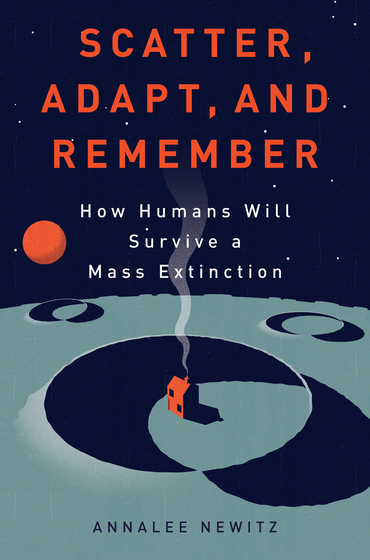Humanity will survive, even as things ‘get weird’
Advertisement
Read this article for free:
or
Already have an account? Log in here »
To continue reading, please subscribe:
Monthly Digital Subscription
$0 for the first 4 weeks*
- Enjoy unlimited reading on winnipegfreepress.com
- Read the E-Edition, our digital replica newspaper
- Access News Break, our award-winning app
- Play interactive puzzles
*No charge for 4 weeks then price increases to the regular rate of $19.00 plus GST every four weeks. Offer available to new and qualified returning subscribers only. Cancel any time.
Monthly Digital Subscription
$4.75/week*
- Enjoy unlimited reading on winnipegfreepress.com
- Read the E-Edition, our digital replica newspaper
- Access News Break, our award-winning app
- Play interactive puzzles
*Billed as $19 plus GST every four weeks. Cancel any time.
To continue reading, please subscribe:
Add Free Press access to your Brandon Sun subscription for only an additional
$1 for the first 4 weeks*
*Your next subscription payment will increase by $1.00 and you will be charged $16.99 plus GST for four weeks. After four weeks, your payment will increase to $23.99 plus GST every four weeks.
Read unlimited articles for free today:
or
Already have an account? Log in here »
Hey there, time traveller!
This article was published 25/05/2013 (4584 days ago), so information in it may no longer be current.
When U.S. science journalist Annalee Newitz, founding editor of the science website io9.com, set out to write a book about the future of humanity, she expected to find the end was nigh.
Instead, her research led her to believe the opposite: that “humanity has a lot more than a fighting chance at making it for another million years.”
The optimistic result is Scatter, Adapt, and Remember, a refreshing pop-science book that examines ways humans could prevail at Armageddon.

What does humanity’s future look like? You might be surprised: Newitz, who is based in California, thinks it looks like Saskatoon.
The Saskatchewan city “has survived despite its hard climate, and people there have found ways to incorporate the latest scientific advances into their agriculture and urban design without overspending,” she writes in the introduction to the book’s Canadian edition.
Scatter, Adapt and Remember is not a manual; it will not help you duck and cover or stock your survival shelter.
Rather, Newitz takes a page from Alan Weisman’s 2010 book, The World Without Us — which conjured the changes coming to a depopulated world — and imagines instead how Homo sapiens can survive whatever attempts to depopulate us, be it nuclear war, plague, asteroid, or some other curse we have not imagined or invented.
Newitz begins with a review of the history of mass extinctions on Earth — from the Proterozoic microbes of 2.5 billion years ago through dinosaurs and whales and Neanderthals. The book is at its driest here, a sort of super-condensed Brief History of Everything, with a special focus on dying.
By the middle of the book we’re considering the lessons previous mass extinctions — and their survivors — have taught, the lessons of the book’s title: scatter, to escape adversity as best you can; adapt as the world around you changes, and remember: pass on the knowledge of how to survive.
It’s worth enduring the rather arid history lesson at the beginning to get to Parts 4 and 5, where Newitz is at her most speculative. Here she really leave Weisman far in the dust, imagining how humanity will survive a million years into the future, perhaps as part-robot, or perhaps living on the Moon, on Mars, or beyond.
“Our kids are the last generation who will see no city lights on the Moon,” predicts a NASA scientist, one of a hundred fascinating experts Newitz interviews.
Did you know the United Nations has an “action team” on the “Committee on the Peaceful Uses of Outer Space” that would co-ordinate Earth’s defences if an asteroid appears to be headed our direction? Scatter, Adapt and Remember will help you rest easy, safe in the knowledge that someone out there is working hard to keep space rocks from killing us all.
“Our kids are the last generation who will see no city lights on the Moon.”
-Scientist interviewed in Scatter, Adapt and Remember
By the time you get to the end of the book, you might find yourself downloading CD3WD, a “backup copy of everything history has taught us about creating an early industrial society.”
Stored on a few DVDs or (perhaps more practically) printed and secured in your post-apocalypse survival kit, it’ll help you rebuild human civilization from scratch — just in case the future goes a bit sideways.
“Things are going to get weird,” Newitz concludes. “But don’t worry. As long as we keep exploring, humanity is going to survive.”
Wendy Sawatzky is associate editor digital news at winnipegfreepress.com and commander in chief at wendysawatzky.com.

Our newsroom depends on a growing audience of readers to power our journalism. If you are not a paid reader, please consider becoming a subscriber.
Our newsroom depends on its audience of readers to power our journalism. Thank you for your support.

